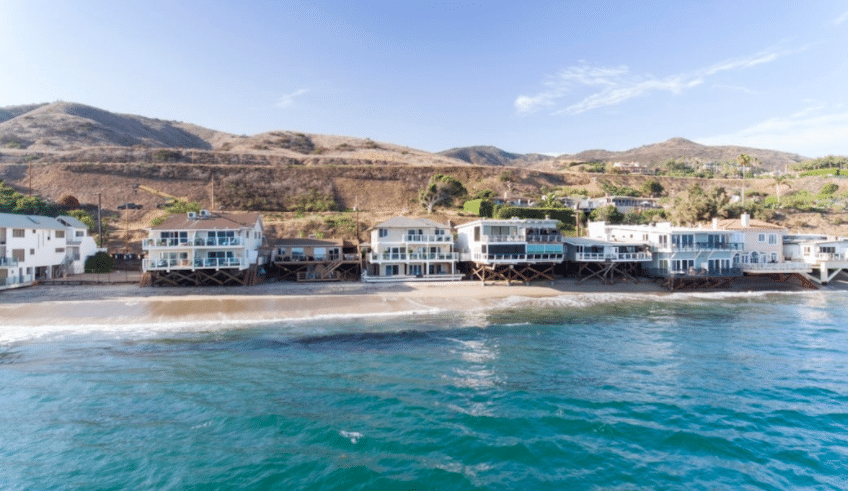Last Tuesday, Sept. 28, Malibu City Council enacted its first-ever short-term rental (STR) ordinance.
The “enforcement ordinance” is designed to give the city’s code enforcement efforts teeth when it comes to disruptive party houses and other issues caused by some STR properties and their owners. The ordinance, which will go into effect only until more comprehensive and permanent short-term rental rules can be drawn up, passed on a unanimous, 4-0, council vote with Council Member Jefferson “Zuma Jay” Wagner absent from the meeting.
In 2015, Malibu struck a deal with short-term rental companies like Airbnb—by subpoenaing their rental data, the city was able to force the companies to comply with transient occupancy taxes. In the end, Airbnb even agreed to collect the tax on behalf of the city, a practice that was rare at the time but eventually became standard for the vacation rental behemoth.
Since then, though, complaints against STRs have risen steadily—as has Malibu’s income from the hotel tax, which nets the city well over $1 million annually. And opponents to short-term rentals of any kind have accused city staffers of seeing dollar signs, blind to neighborhoods being disrupted by visitors and homes being “used as motels.”
Over the years, many have spoken up in favor of companies like Airbnb, which bring visitors to Malibu’s coveted seashores, earn residents extra cash and, many have suggested, boost sales at local restaurants and businesses. But on Tuesday, the only voices who called into the Zoom meeting were those who opposed the entire idea of an ordinance, saying that if rentals operate much like hotels, they should be regulated like hotels.
“It is simply an outrage that you’re now saying it’s been allowed all this time,” longtime critic Bill Sampson told council, later adding, “It has not been allowed. It has been illegal at all times.”
“Will the fees collected pay for another code enforcement position? I don’t think so. Who would be enforcing this and would it be rigorous enough?” resident and former planning commissioner Kraig Hill asked, later adding, “We need a way to make this more immediate and direct, so if you violate, you get fined—bam.”
“Don’t think we don’t empathize with you,” Council Member Rick Mullen said, adding that council wanted to “take a shot” at fixing some of the issues created by vacation rentals.
“We hear you. I feel for you. Let’s see how it goes,” Mullen added.
The ordinance, which will go into effect in January, stipulates that each owner must procure a permit in order to operate a short-term rental property within the city of Malibu, with a separate permit needed for each unit. The application for an STR permit requires a valid septic operating permit and other information such as a correct number of bedrooms and up-to-date contact information. Owners must also attest their homeowners association (or other association) does not prohibit STRs. Once approved, the permit is good for one year.
There is also a long list of requirements for Malibu STRs, including: providing fire extinguishers, smoke detectors and carbon monoxide detectors; an agent available 24 hours a day to respond to complaints or emergencies; providing guests with a copy of the city’s short-term rental code of conduct; and a maximum occupancy of 14 people (or two people more than twice the number of bedrooms, whichever is less).
Permits can be revoked if taxes are not paid, there are outstanding code enforcement violations, fire and building codes are not met, or two or more citations for noise ordinance violations have been issued in the last 12 months, among other grounds.
STR FAQ:
If I am currently renting out a house on Airbnb, can I still do so?
The new ordinance is not set to go into effect until Jan. 15, 2021, giving property owners time to apply for permits.
What is the difference between this ordinance and the other STR ordinance I’ve heard about?
This ordinance is designed to provide enforcement of rules while a more stringent ordinance is developed. While this type of enforcement is allowed at a city level, staff and council members believe a stricter set of guidelines must go before the California Coastal Commission, so, rather than wait another year or two (or more) to begin enforcing STRs, this was put forth as a stop-gap measure for now. When the new ordinance is in place, this one will become null.
How do I get the party house next door shut down?
After the ordinance goes into effect, if you live near an STR property violating the city’s noise ordinance, packing more than 14 people into a house or otherwise violating the terms of the permit, a phone call to the city should start the ball rolling toward a permit’s revocation. For now, report a nuisance by calling the city’s Short-term Rental Hotline at 310.456.2489 ext. 308 or email STR@malibucity.org.
Is there a limit on the type of property or number of units one owner can rent out?
Not in this ordinance; that is expected to come back in the longer-term “hosted” ordinance.
Where can I find out more information about the city’s STR ordinance?
Visit the city’s website.

